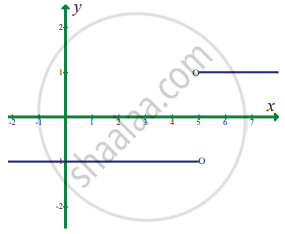Advertisements
Advertisements
प्रश्न
Evaluate the following limits:
`lim_(x -> 0) (3^x - 1)/(sqrt(x + 1) - 1)`
उत्तर
We know `lim_(x -> 0) ("a"^x - 1)/x = log "a", "a" > 0`
`lim_(x -> 0) ((3^x- 1)/(sqrt(x + 1) - 1)) = lim_(x -> 0) ((3^x - 1)/(sqrt(x + 1) - 1)) xx (sqrt(x + 1) + 1)/(sqrt(x + 1) + 1)`
= `lim_(x -> 0) ((3^x - 1) (sqrt(x + 1) + 1))/(x + 1 - 1)`
= `lim_(x -> 0) ((3^x - 1) (sqrt(x + 1) + 1))/x`
= `lim_(x -> 0) ((3^x - 1)/x) xx lim_(x -> 0) (sqrt(x + 1) + 1)`
= `log 3 xx (sqrt(0 + 1) + 1)`
= `log 3 xx (1 + 1)`
= 2 log 3
= log 32
`lim_(x -> 0) (3^x - 1)/(sqrt(x + 1) - 1) = log 9`
APPEARS IN
संबंधित प्रश्न
Evaluate the following :
Given that 7x ≤ f(x) ≤ 3x2 – 6 for all x. Determine the value of `lim_(x -> 3) "f"(x)`
Evaluate the following :
`lim_(x -> 0) {1/x^12 [1 - cos(x^2/2) - cos(x^4/4) + cos(x^2/2) cos(x^4/4)]}`
In exercise problems 7 – 15, use the graph to find the limits (if it exists). If the limit does not exist, explain why?
`lim_(x -> 5) |x - 5|/(x - 5)`
If f(2) = 4, can you conclude anything about the limit of f(x) as x approaches 2?
Evaluate the following limits:
`lim_(x -> 1) (root(3)(7 + x^3) - sqrt(3 + x^2))/(x - 1)`
Evaluate the following limits:
`lim_(x -> 2) (2 - sqrt(x + 2))/(root(3)(2) - root(3)(4 - x))`
Evaluate the following limits:
`lim_(x - 0) (sqrt(1 + x^2) - 1)/x`
A tank contains 5000 litres of pure water. Brine (very salty water) that contains 30 grams of salt per litre of water is pumped into the tank at a rate of 25 litres per minute. The concentration of salt water after t minutes (in grams per litre) is C(t) = `(30"t")/(200 + "t")`. What happens to the concentration as t → ∞?
Evaluate the following limits:
`lim_(x -> 0) (sin^3(x/2))/x^2`
Evaluate the following limits:
`lim_(x -> 0) (sinalphax)/(sinbetax)`
Evaluate the following limits:
`lim_(x -> 0) (tan 2x)/x`
Evaluate the following limits:
`lim_(x -> pi) (sin3x)/(sin2x)`
Evaluate the following limits:
`lim_(x -> pi) (1 + sinx)^(2"cosec"x)`
Evaluate the following limits:
`lim_(x -> oo) ((x^2 - 2x + 1)/(x^2 -4x + 2))^x`
Evaluate the following limits:
`lim_(x -> ) (sinx(1 - cosx))/x^3`
Evaluate the following limits:
`lim_(x -> 0) (tan x - sin x)/x^3`
Choose the correct alternative:
`lim_(x -> 0) ("e"^(sin x) - 1)/x` =
Choose the correct alternative:
The value of `lim_(x -> 0) sinx/sqrt(x^2)` is
`lim_(x→0^+)(int_0^(x^2)(sinsqrt("t"))"dt")/x^3` is equal to ______.
